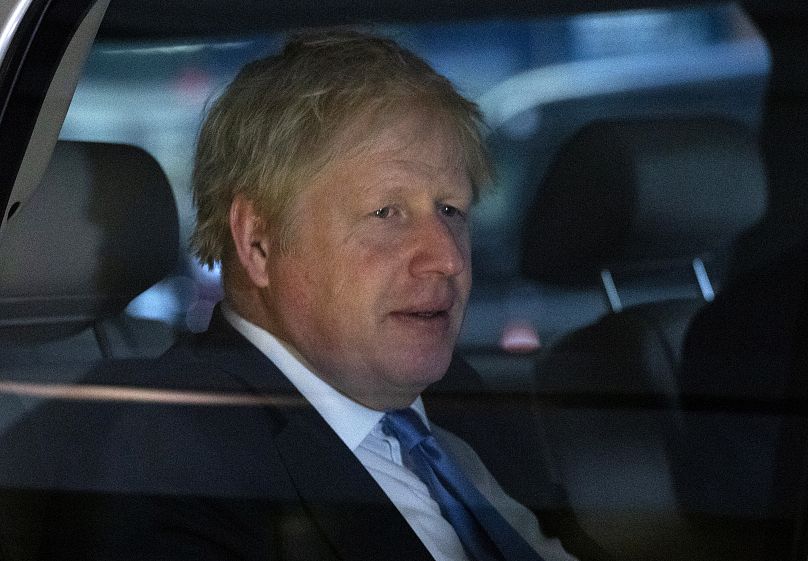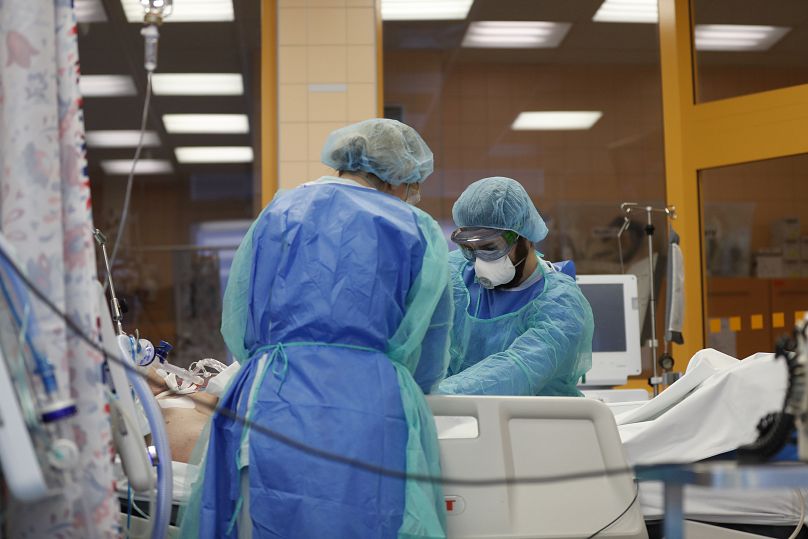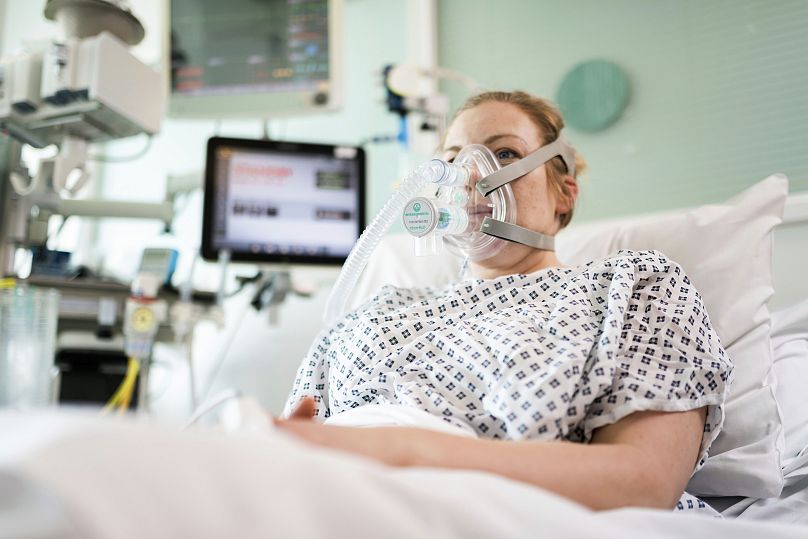We spoke to an expert about why a patient with COVID-19 would be admitted to intensive care, and what happens when they are there.
Some patients with coronavirus are taken to intensive care units (ICU) to be given some extra help to combat the disease, with Boris Johnson becoming the most high-profile figure to do just that.
He was initially admitted to hospital on Sunday night, and said himself the following afternoon that he was "in good spirits" - but by evening his condition had worsened and he was moved to an ICU.
A Downing Street spokesman said the move had been one of "precaution should he require ventilation", and that the UK prime minister was still conscious.
By Tuesday, the spokesman said Johnson had been "stable overnight" and had received oxygen support.
"He is receiving standard oxygen treatment and is breathing without any other assistance," the spokesman said, adding that the 55-year-old not been placed on mechanical ventilation or "non-invasive respiratory support".
Cabinet minister Michael Gove earlier said the prime minister was "under close supervision" and had "further support" if he needs it - but, what does this all actually mean?
To find this out, we asked expert Derek Hill, a professor of medical imaging science at University College London, why some COVID-19 patients go to ICU and what happens when they are there.
Why do people go to an ICU generally, and why do they go to an ICU with coronavirus?
Hill, who spoke generally about ICUs and not on Johnson's specific case, said: "People normally only go to into intensive care when they are critically ill."
Speaking about coronavirus, he added: "Problems with breathing are a common symptom in COVID-19.
"When these breathing problems get serious, people need to go to hospital and have help breathing."
People admitted to hospital could start with more simple treatments, he said, such as being given oxygen in a treatment called Conventional Oxygen Therapy.
READ MORE:
- Has the key to a vaccine been staring us in the face for a century?
- People are saying coronavirus is a cover up for 5G - here's why it's not
- Sweden stands firm over its controversial COVID-19 approach
"Some people manage with this level of breathing," Hill said, adding: "Others need more help breathing.
"This is where intensive care admission may happen."
What happens to a coronavirus patient in an ICU?
"Not everyone is treated in the same way in intensive care, Hill said, noting that "more sophisticated help breathing" has two forms: invasive, or non-invasive.
"Invasive ventilation," Hill said: "Involves a tube being stuck down the patient's wind pipe."
This process is called intubation, where the tube is then connected to a ventilator to push air into the lungs of a patient who is unable to take a breath themselves. It is usually carried out when a person is sedated.
The other type, therefore, is non-invasive ventilation, which Hill said "can involve a specialised mask or hood."
He added: "A common approach is called Continuous Positive Airway Pressure, or CPAP for short.
"With this type of breathing support, the patient starts each breath themselves and the machine helps them fill their lungs, and also provides extra oxygen as they breathe.
"CPAP is widely used in treatment of sleep apnea, and is also useful in treating some COVID-19 patients, at least initially."
Hill added: "Most hospitals have a carefully designed process for assessing patients and changing the breathing support they receive based on symptoms."
What will doctors be monitoring in coronavirus patients - like Johnson - while in intensive care?
"They will be continuously monitoring many physiological parameters," Hill said, and noted there would a particular focus on how much oxygen was in the blood.
This is called measuring the oxygen saturation (SpO2), and can be done with a piece of equipment called a pulse oximeter, which attaches to a person's finger.
What are the chances of recovering from coronavirus in an ICU?
Figures showing the rate of recovery from intensive care are not entirely clear due to a number of factors including a lag in reporting figures, the illness being so new, and with so many patients still receiving treatment.
According to the most recent report from the Intensive Care National Audit and Research Centre, which used early data covering the first 24 hours in the critical care unit of coronavirus patients in England, Wales and Northern Ireland, around 15% of 2,249 patients had since been discharged.
A further 15% of patients had died, while the vast majority (70%) were still believed to be in critical care.
This shows that around 50% of patients with known outcomes have died; however, this is not an accurate representation of the number of patients who actually recover from the disease in an ICU due to the number of people still being treated.
"Some people with COVID-19 are out of intensive care within a few days," Hill told Euronews.
But, he added, it is "quite common" to be treated in an intensive care unit for more than a fortnight "to have help breathing while the body fights the virus.
_Watch Euronews' interview with Dr Bharat Pankhania, Senior Clinical Lecturer at the University of Exeter, in the media player at the top. _














